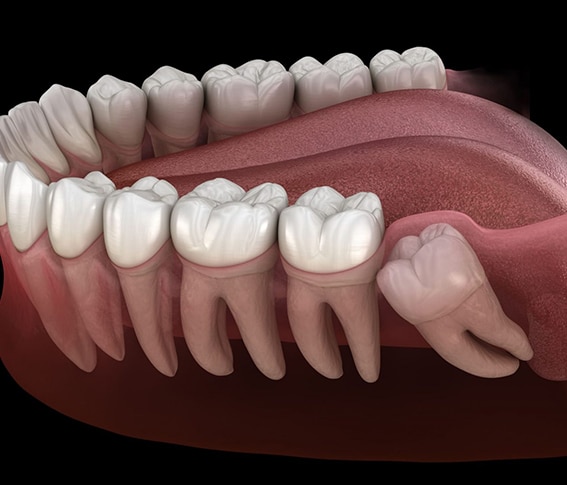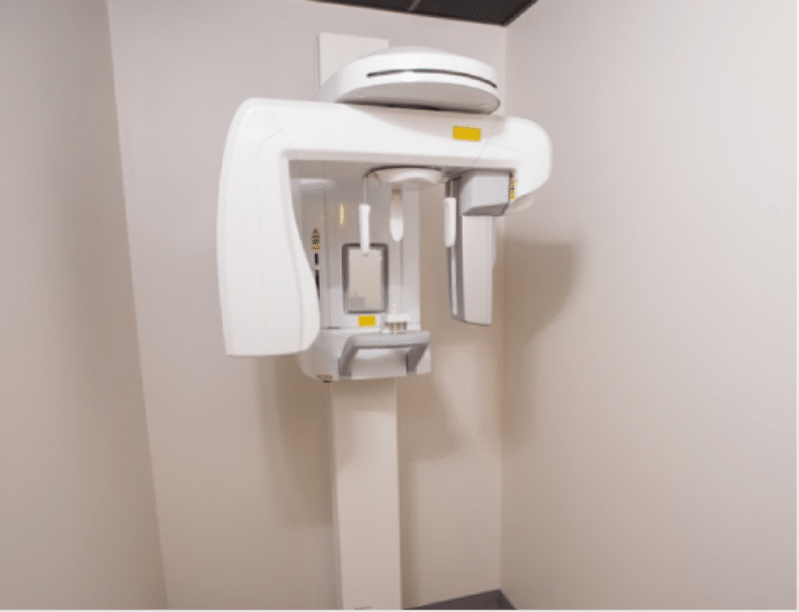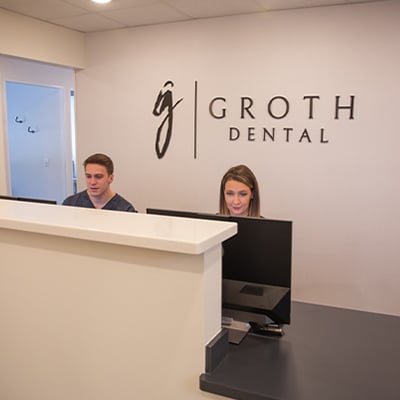
Wisdom Teeth Removal
Wisdom teeth are the third set of molars that typically come in during the late teens to early twenties. While some people have enough space for their wisdom teeth to grow in naturally, others may experience issues as the teeth try to emerge through the gums at an angle. This can lead to pain, uneven growth, or partial emergence.
Impacted wisdom teeth can cause damage to the jaw and surrounding teeth, as well as create a breeding ground for bacteria due to their difficult-to-reach location. To prevent potential problems, it is often necessary to remove impacted wisdom teeth. Regular dental x-rays can help determine if removal is needed during a dental exam.
Ensuring Your Oral Health and Comfort
Wisdom teeth, also known as third molars, typically come in between the ages of 15 and 25 and can cause pain or discomfort for patients. If your wisdom teeth have already come in, we can do a visual examination. If they have not yet emerged, we can use x-rays to determine if extraction is necessary.
After considering factors like tooth size, mouth shape, and wisdom teeth position, we will decide if removing your wisdom teeth is necessary. Removing them early can help prevent issues like teeth crowding, TMJ problems, infections, tooth decay, and damage to nearby teeth. It can also be difficult to keep wisdom teeth clean, leading to cavities, gum disease, and infections. Instead of treating these issues with fillings or gum treatments, it is generally recommended to have the wisdom teeth removed as the best course of action.
How Can I Determine If My Wisdom Teeth Need To Be Removed?
- Impaction occurs when a tooth is stuck under the gums or completely hidden, such as with wisdom teeth that cannot emerge normally.
- Wisdom teeth trapped in the jaw can lead to infection or the formation of a cyst that can harm neighboring teeth or roots.
- Wisdom teeth growing at different angles, including horizontally, can alter bite alignment.
- The lack of space for wisdom teeth to properly emerge can cause overcrowding or damage to surrounding teeth.
- Partially emerged wisdom teeth can create a breeding ground for bacteria, leading to gum disease and oral infection.
What Can I Do To Alleviate The Pain Caused By My Wisdom Tooth?
- It is recommended to rinse using saltwater.
- To help alleviate pain, consider using either peppermint essential oils or clover oil.
- Take aspirin or another over-the-counter pain reliever if needed.
- Apply either an ice pack or a heating pad on your cheeks for relief.






